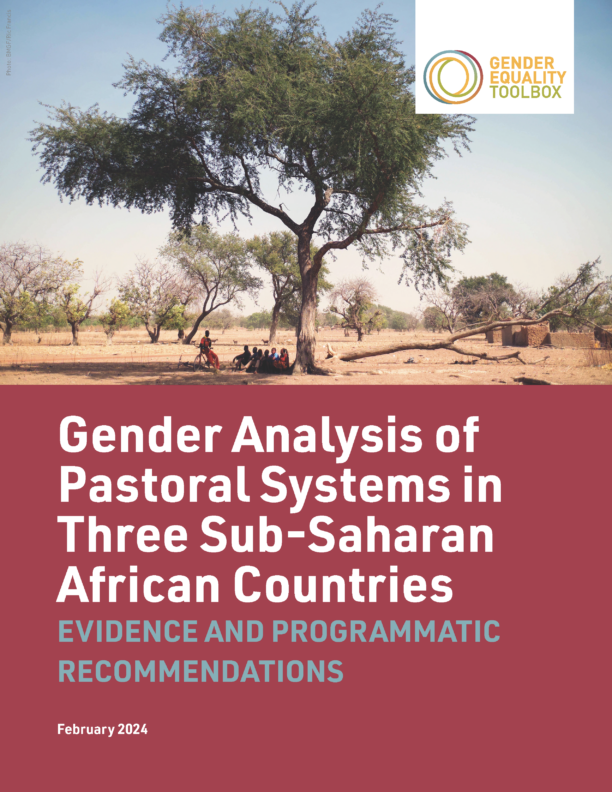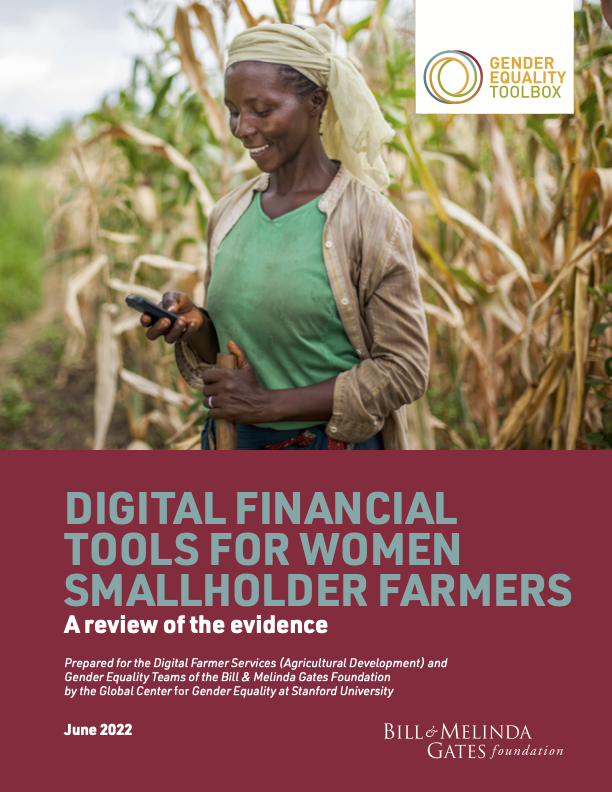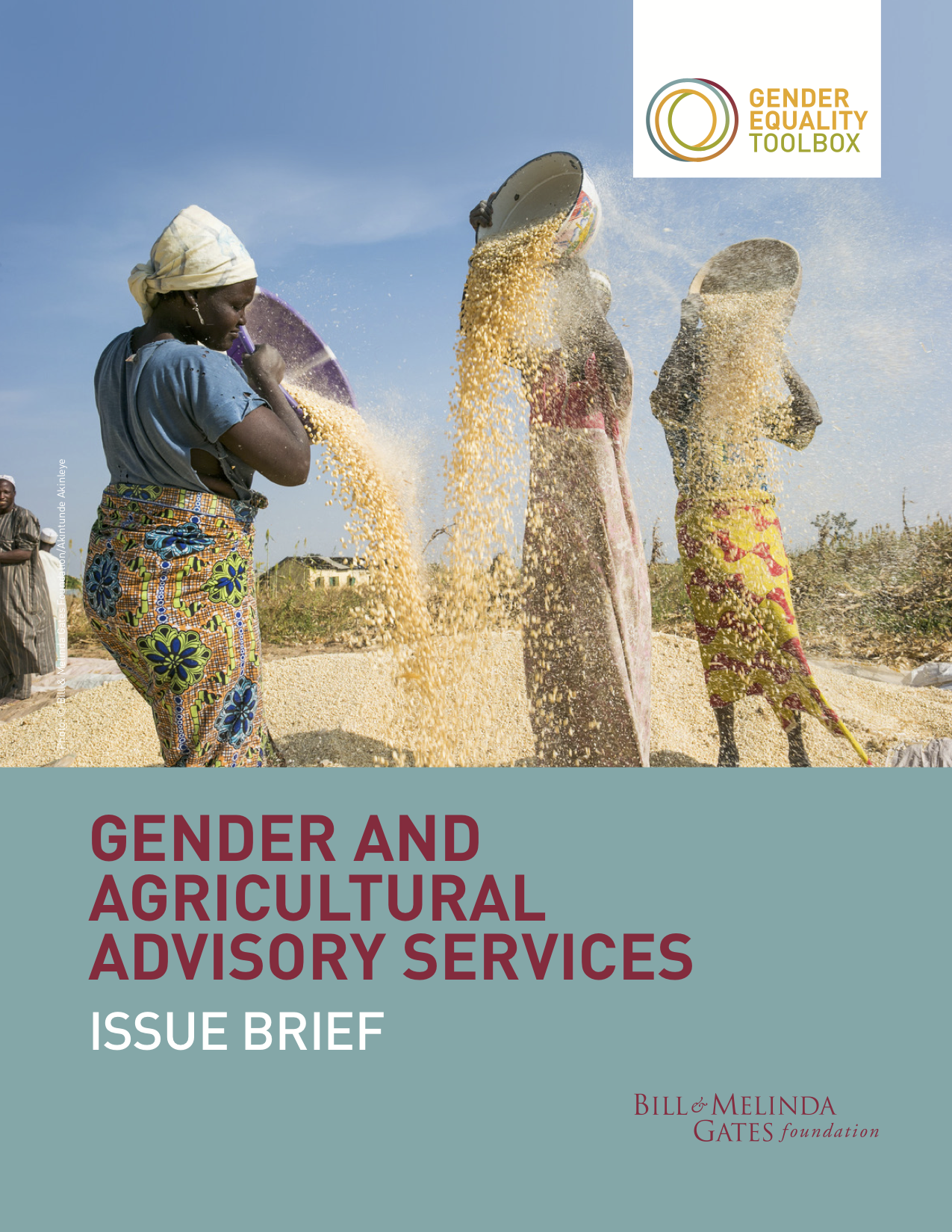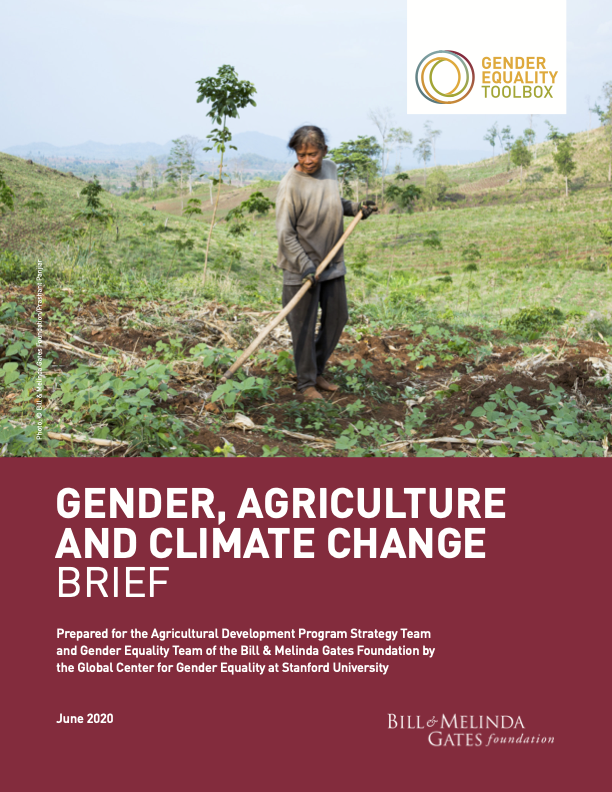
Gender Analysis of Pastoral Systems in Three Sub-Saharan African Countries
The Gender Analysis of Pastoral Systems in Three Sub-Saharan African Countries Report aims to enhance understanding and guide strategies for addressing gender-specific challenges within the context of livestock production in Ethiopia, Nigeria, and Burkina Faso. The report explores social contexts related to gender and pastoralism, including land use legislation, demographic influences on women’s autonomy, and gender roles in livestock production. Women pastoralists play vital roles in livestock production, and the report outlines their variability in responsibilities based on location, production system, and ethnic group. A clear gender division is observed across all regions, with women’s household duties tying them closely to home. Common challenges faced by all pastoralists, such as poverty, drought, mobility, and climate change, are noted. However, challenges specific to women stem from social norms and the division between public spaces (occupied by men) and private spaces (occupied by women).
GENDER ANALYSIS OF PASTORAL SYSTEMS IN THREE SUB-SAHARAN AFRICAN COUNTRIES

Digital Financial Tools for Women Smallholder Farmers
Digital financial tools have tremendous potential to help rural women save, borrow, and insure themselves and their families against risk. But the evidence shows that the gender gap in access to and usage of Digital Financial Services (DFS) has not narrowed in the past decade. This is a matter of some urgency because such limited access constrains the ability of women smallholder farmers to manage risks, invest and expand production, and improve their livelihoods and well-being. This report raises three key points:
- Digital tools must be designed with women’s unique needs in mind;
- Women need additional training and support to overcome deeper concerns about risk and privacy;
- And – significantly – technology alone is not the answer. While improved digital tools are important, the most effective use of these tools is achieved when equal attention is given to the social context in which the tools are introduced and used.
The report documents multiple examples in which digital technologies were successfully introduced in the context of broader financial empowerment programs, including examples in which husbands were included in the conversations. The report includes five main recommendations, from DFS design to delivery, that will improve access for women smallholder farmers.

GENDER AND AGRICULTURAL ADVISORY SERVICES ISSUE BRIEF
This Issue Brief was prepared for the Agricultural Development Program Strategy Team and the Gender Equality Team of the Gates Foundation. It identifies the issues, challenges and opportunities that exist for investing in gender intentional agricultural advisory services (AAS). Specifically, the brief establishes the rationale for targeting both female and male farmers in the provision of AAS, and reviews the most current evidence on the benefits of gender-inclusive staffing, technical content, and delivery methods. The Brief concludes with broad recommendations and guidelines for Program Officers to employ when working with partners on AAS investments.

GENDER, AGRICULTURE AND CLIMATE CHANGE BRIEF
This brief is a targeted review of the evidence currently available on gender differences in climate change impacts on agriculture and gender barriers to the uptake of climate adaptation practices and technologies. It finds that gender differences in vulnerability to agriculture-related climate change impacts and the adoption of climate smart agricultural interventions are driven primarily by the gender division of labor; the feminization of agriculture in large regions of the developing world; and longstanding gender disparities in access to and agency over key resources–chiefly land, labor, financial capital, and climate-relevant information. The brief also describes promising approaches to a gender integration of climate change adaptation initiatives.